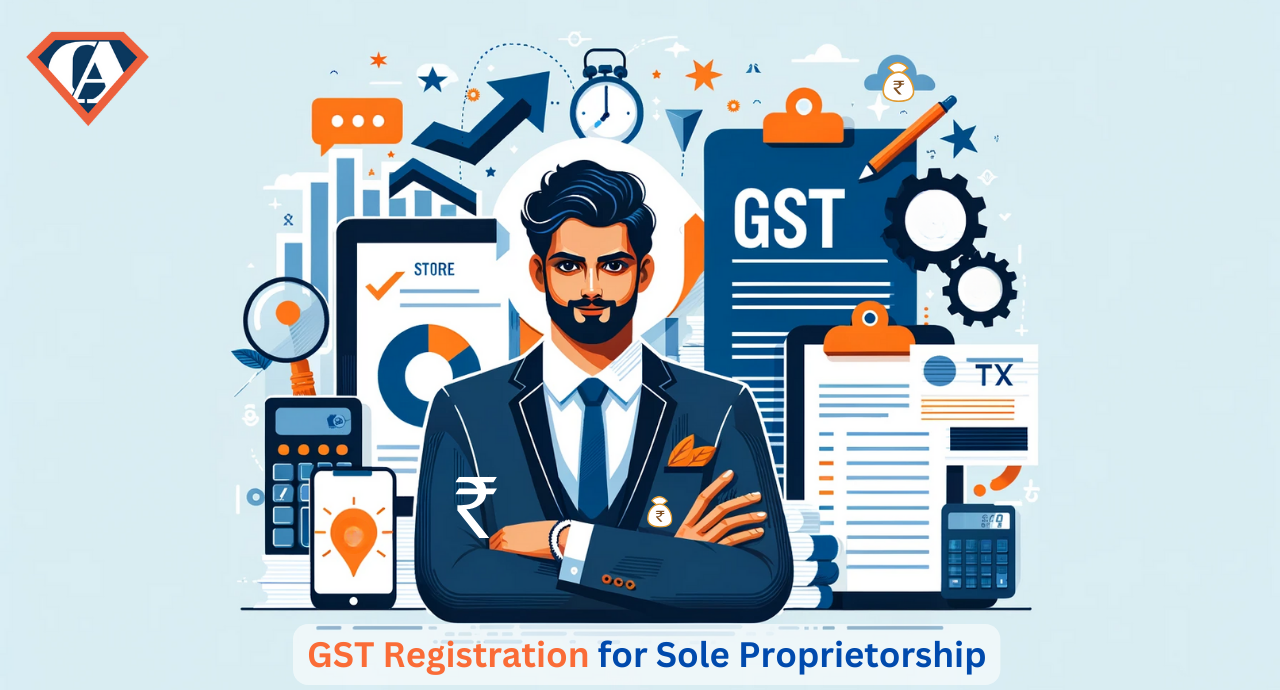How to Locate the Best GST Registration Services in Singapore Quickly
How to Locate the Best GST Registration Services in Singapore Quickly
Blog Article
Throughout: The Ultimate Roadmap to GST Enrollment for Services Looking For Financial Stability
Browsing the intricacies of Item and Provider Tax (GST) enrollment is an important action for services pursuing monetary security. From understanding the essential principles of GST to abiding by post-registration standards, the procedure can seem discouraging initially glimpse. Nevertheless, damaging down the roadmap into workable actions can simplify the registration trip for businesses wanting to improve their economic standing. Allow's explore the necessary parts that make up this best roadmap and find exactly how each phase contributes to laying a solid foundation for monetary success.
Recognizing GST Basics
Digging right into the essential principles of Goods and Provider Tax Obligation (GST) is important for gaining a comprehensive understanding of its effects on companies and the economy. GST is a value-added tax levied on most products and solutions for residential intake. It has actually replaced numerous indirect taxes that existed in the pre-GST period, enhancing the tax structure and enhancing ease of doing company in India. Under the GST system, both solutions and items are exhausted at a certain rate, which is figured out based on their classification. Companies are required to sign up for GST if their yearly turnover goes beyond the threshold limit established by the federal government. Input Tax Credit Scores (ITC) is a significant feature of GST, enabling companies to claim credit history for taxes paid on inputs, decreasing the general tax obligation concern. Understanding the fundamentals of GST is critical for services to follow tax obligation policies, manage their funds effectively, and contribute to the nation's economic development by taking part in a transparent tax system.
Qualification Requirements for Enrollment
To sign up for GST, businesses need to meet particular qualification criteria established by the federal government. The key qualification requirement is that any business associated with the supply of goods or services with a yearly accumulation turn over above the threshold restriction established by the authorities must sign up for GST. Since the present laws, the threshold limit for GST enrollment is an annual aggregate turnover of 40 lakhs for companies operating within a state, with the exception of special category states where the restriction is 20 lakhs. In addition, particular services are called for to sign up for GST irrespective of their turn over, such as interstate vendors, laid-back taxable individuals, and companies accountable to pay tax obligation under the reverse fee mechanism. It is crucial for businesses to thoroughly analyze their turnover and transaction kinds to establish their GST registration obligations properly. Failure to register for GST when eligible can result in fines and legal consequences, making it important for businesses to stick to the specified qualification criteria.
Files Required for Registration
Having met the eligibility requirements for GST enrollment, services need to currently ensure they have the requisite files in place to wage the enrollment process effectively. The records required for GST registration commonly include proof of company constitution, such as collaboration act, enrollment certification, or unification certificate for different kinds of services. In addition, services require to give records developing the major workplace, such as a rental agreement or electrical power expense. PAN card of the company, as well as the identity and address proof of promoters/partners/directors, are necessary for confirmation objectives. Savings account statements, together with canceled cheques or a copy of the financial institution passbook, are called for to confirm the economic information supplied during registration. Additionally, companies should have electronic trademarks ready for the authorized signature. Making sure all these papers are arranged and conveniently available will over here quicken the GST enrollment procedure, enabling organizations to follow tax obligation laws seamlessly.
Step-by-Step Registration Refine
Commencing the GST enrollment procedure entails a collection of organized steps to ensure a smooth and certified registration for services. The primary step is to go to the GST website and fill in the registration kind with exact details of the business entity. Following this, the candidate gets a Short-lived Reference Number (TRN) which is utilized to return Your Domain Name to the application process if it's not completed in one go.
Next, all needed records based on the list offered by the GST portal need to be uploaded. These files commonly include evidence of business identification, address and enrollment evidence of marketers, monetary declarations, and service entity's frying pan card.

Post-Registration Conformity Guidelines

Conclusion
In final thought, businesses seeking financial stability has to recognize the essentials of GST, satisfy eligibility standards, gather necessary documents, follow the detailed enrollment process, and abide by post-registration guidelines - Best GST registration services in Singapore. By sticking to these actions, organizations can make sure compliance with tax regulations and preserve financial security over time
Furthermore, particular businesses are required to sign up for GST regardless of their turnover, such as interstate suppliers, laid-back taxable persons, and businesses accountable to pay tax under the reverse cost device.Having actually fulfilled the qualification requirements for GST registration, businesses need to currently ensure they have the requisite papers in location to continue with the registration process successfully. The his comment is here records required for GST registration usually include proof of service constitution, such as collaboration act, registration certification, or incorporation certification for various types of services. Additionally, companies need to offer files establishing the principal location of business, such as a rental contract or power expense.Starting the GST enrollment process entails a series of organized actions to guarantee a certified and smooth registration for services.
Report this page